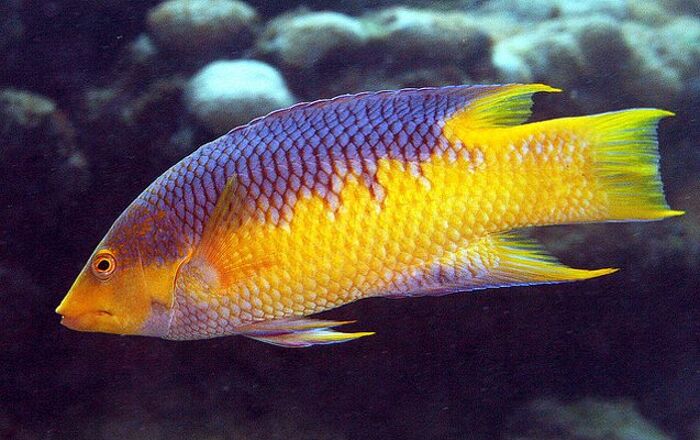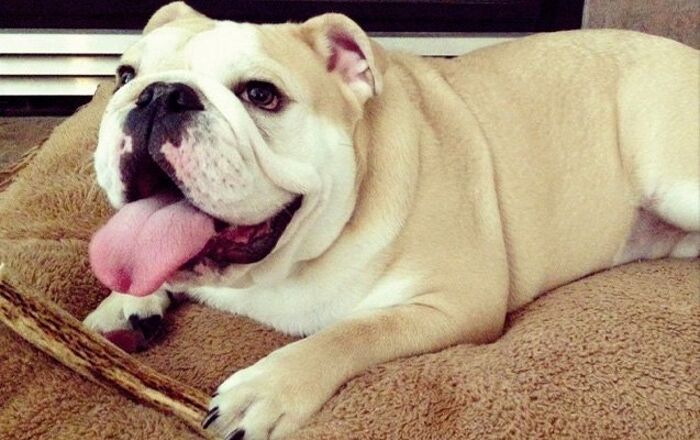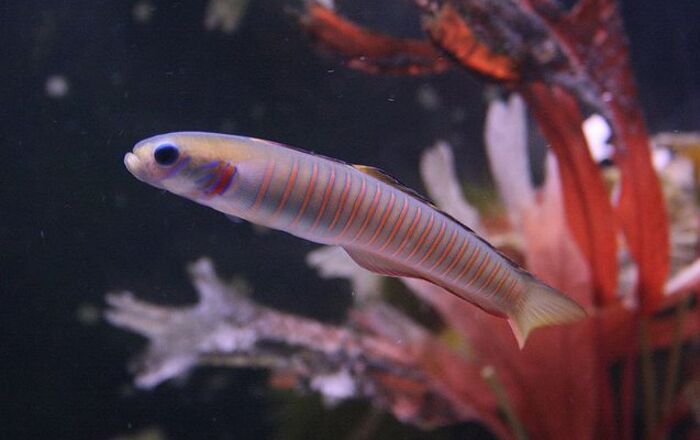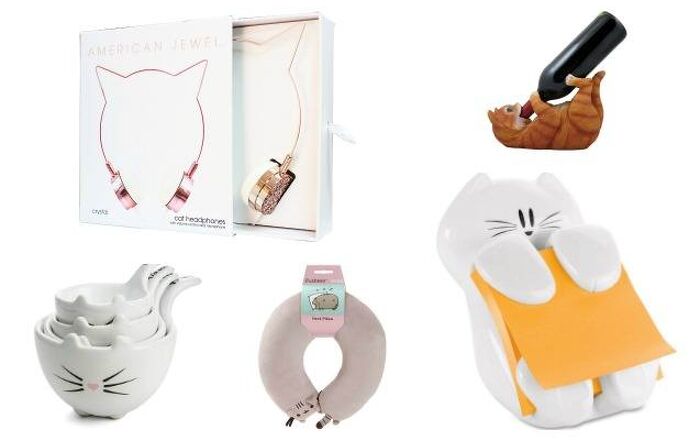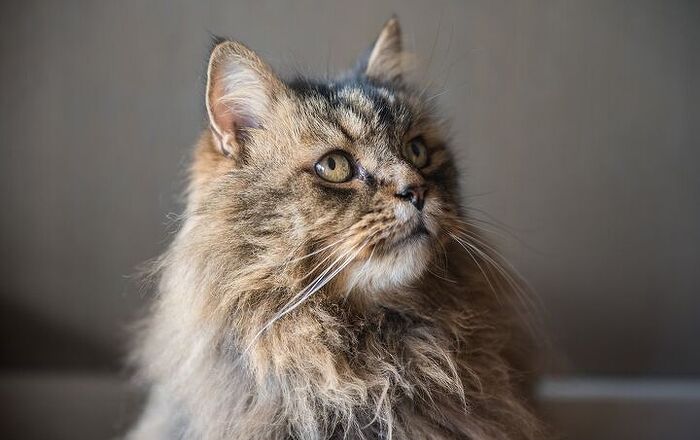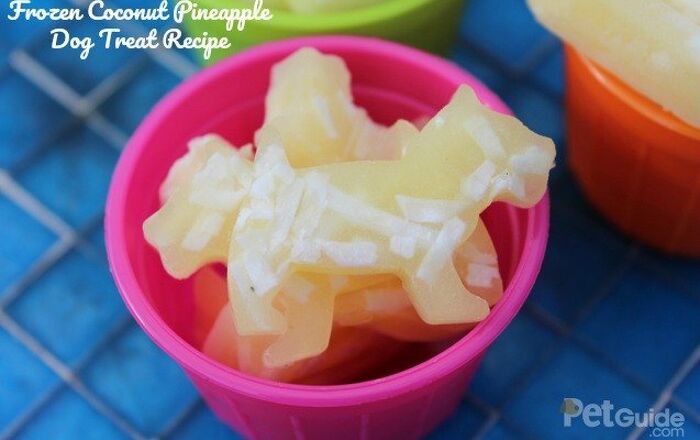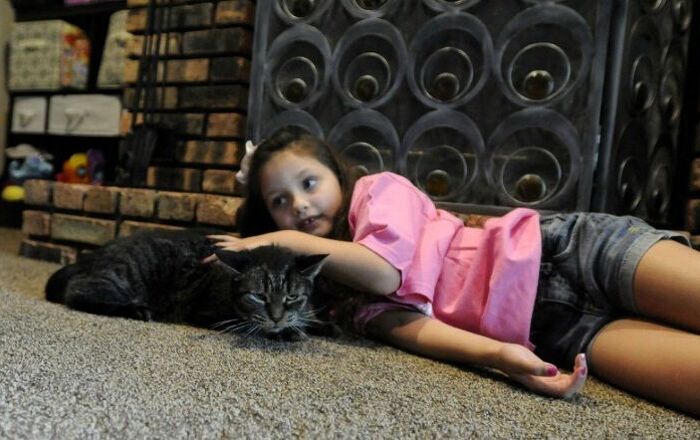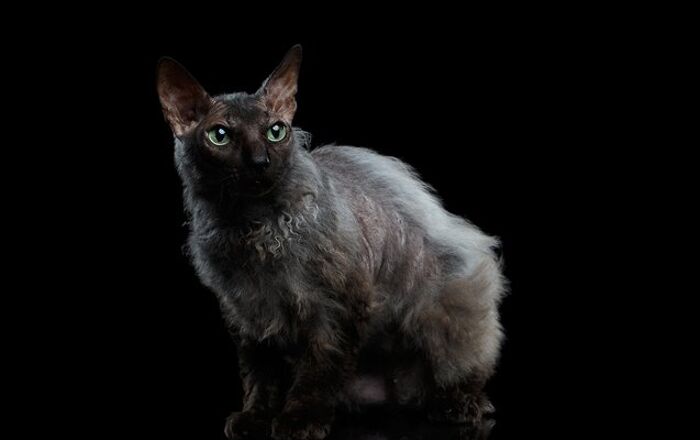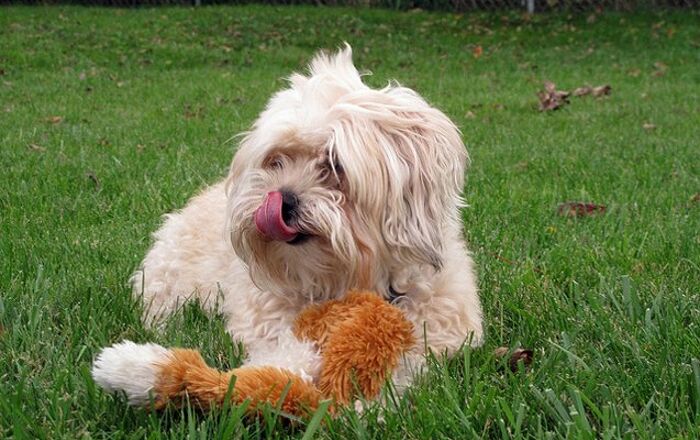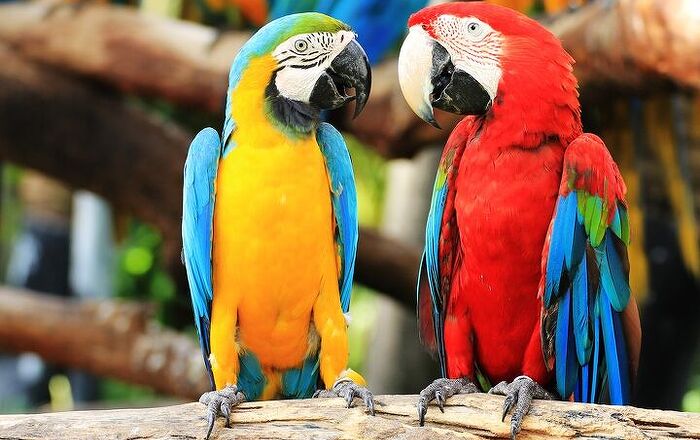Hairball remedies help your cat pass hairballs without the discomfort of coughing and vomiting or danger of intestinal blockage. Learn more about what causes hairballs in cats and which hairball remedies are the best choice for treating them.
What cat owner didn’t wake up, at least once in their life, to the charming sound of their cat gagging and retching? While vomiting isn’t always considered normal, in cats – it’s far more common than it is with other pets. Vomiting is a nasty side effect to your cat’s cleanliness – their vigorous self-grooming routine is usually what has them hurling when you least expect it. In case there are no other symptoms that could signify your pet has an underlying health problem that is causing the vomiting, it’s highly likely that your kitty is dealing with hairballs. Cats swallow a lot of hair while they are cleaning themselves, and, sometimes, that hair doesn’t pass through the intestinal system but rather gets stuck in the stomach and forms into something called trichobezoar or hairball.
Despite what the name suggests, hairballs are not shaped as balls – rather, these are clumps or wads of hair that stuck together in your kitty’s stomach. Needless to say, depending on the amount of hair your pet has managed to ingest while grooming and the state of their digestive system, hairballs can end up being too large for them to either vomit out or pass through stool, which is when problems can arise. Hairballs can get lodged in the small intestine or block your pet’s throat. These types of obstructions can potentially be lethal for your pet unless noticed and treated on time, so it’s clear that hairballs are not always harmless- and that your feline friend requires your help to manage them.
In addition to trying to prevent the forming of hairballs in the first place (with a better grooming routine and possible diet changes), owners can help their cats cope with this pesky issue with various hairball remedies. There are plenty of products that target this particular problem and provide relief – these remedies help cats get rid of hairballs in a safe way, mostly by supporting digestion and ensuring that the hair passes through stool as it is intended too. From chewable tablets and treats to gels and pastes, there are plenty of options to choose from and find a perfect match for your feline’s needs.
To help you figure out what kind of hairball remedies will be the best option for your cat’s problem, we’ve rounded the best products on the market – loved both by experts and pet parents alike. The list includes hairball remedies in all formulas and forms so you can find a perfect match whatever your preferences might be. And if you’re unsure what it is you should be looking for in hairball remedies in the first place- just scroll on down to learn more about what factors are important to consider before buying.
What better way to deal with hairballs than to stop them from forming in the first place? The formula of these chicken-flavored chewables includes beneficial ingredients such as psyllium seed, marshmallow root, papaya, and slippery elm bark, all of which work to promote a healthy digestive tract. The supplement is meant to ensure that any hair your pet swallows during self-grooming easily passes through their digestive system and ends up in poop- instead of blocking their intestines. These chewable tablets are given daily and require a proper grooming routine to boost their effect, especially if you have a long-haired cat.
You can’t go wrong with the classics- and this malt-flavored hairball paste is a tried-and-true formula that most cats love. The paste relieves the symptoms of hairballs such as constipation, hacking, and vomiting and eases the passage of hair through the intestines: its laxative properties will make sure your kitty doesn’t have a problem pooping out the hair that accumulates in their stomach. You can either put some paste on your pet’s paw and let them lick it or just pour some in their food if they really like the malt flavor.
No matter how hard you try, some cats remain terribly finicky and picky. No flavor will entice those fussy kitties so it can be difficult to get them to ingest their medicine without them making a scene. In those instances, this flavorless and odorless liquid hairball remedy is heaven-sent. It is so easy to administer as all it takes is a few drops in your pet’s meal – they will be none the wiser and the remedy will work its magic nonetheless. The formula contains diluted vitamins, minerals, and electrolytes that will support your pet’s immune system and decrease hairballs. Available as a dropper or in a spray bottle.
This tuna-flavored laxative will make constipation a thing of the past – and help your feline friend pass hairballs the natural way. And without feeling any discomfort or strain! The lubricating properties of this formula help swallowed hair to pass through your cat’s digestive tract with ease, so the effect is twofold: it will work to prevent the formation of the hairballs as well as help your cat get rid of the hair they swallowed by expelling them through feces. Easy to administer, this hairball remedy tastes like tuna- favorite flavor of most kitties.
With its fishy flavor and catnip extract in the ingredients list – it is highly likely that your picky cat will love this hairball remedy. The method of administration is simple: just squeeze out a bit of paste onto your pet’s paws and they’ll have no choice but to lick it all up! The tantalizing flavors and ingredients ensure it. The formula of this hairball remedy is based on natural oils that will lubricate your pet’s digestive system and allow the hairs to pass easily through it. This product is made with human-grade ingredients in an FDA registered facility.
One of the most popular choices on the market, this hairball lubricant is not just designed to help your pet deal with the hair they swallow while they groom, but also to help them maintain a healthy, shiny coat. Enriched with Omegas 3, 6, and 9, it will make sure your cat’s skin and hair are up to snuff and even minimize shedding to a degree. The lubricating ingredients in the formula such as malt syrup or soybean oil, on the other hand, make sure that coughing up hairballs becomes a thing of the past for your pet.
This hairball remedy is loved by veterinarians and pet parents both and with good reason. Not only is it budget-friendly, but it works wonders: as a petroleum-based laxative, it will lubricate the hair and allow for easy passage through the digestive tract. To boot, the formula is enriched with cod liver oil and vitamin E, both of which work to support a healthy and great looking skin and coat in cats. Made in the USA, this hairball remedy has a palatable flavor, too, so no worries if you have a picky eater on your hands.
By relying on the benefits of psyllium husk and pumpkin, this natural hairball remedy eliminates and prevents hairballs. When used on a daily basis, it will support your pet’s digestive system and help the passing of swallowed hair, but you still have to be vigilant about brushing, particularly for cat breeds that have long flowy hair. These soft chews taste like treats and are a great choice for kitties that frown on paste remedies.
The tasty, salmon flavor all but guarantees your cat’s interest in this paste, whether you put it on their paws or squeeze out a bit in their bowl. The formula aids hairballs in passing through the digestive tract by relying on ingredients such as liquid petroleum, salmon oil, malt extract, and sunflower oil. These coat the hair and lubricate the gastrointestinal tract so the hairballs won’t get stuck – they simply end up as some stray hair in your pet’s poop.
With healthy and potent ingredients in its formula, this salmon-flavored hairball remedy is not only effective in preventing and eliminating hairballs but it also nourishes your pet’s skin and coat. Coconut oil, wild salmon oil, and vitamin E all work to support a shiny fur that sheds less and a skin that’s not dry or flaky.
One of the traits cats are best known for is their cleanliness. Unlike pooches that wouldn’t mind walking around with caked-on dirt on their fur and smelling like an old sock, kitties have much higher standards when it comes to their personal hygiene. Cats are avid self-groomers and their “beauty routine” involves a lot of licking of their own fur. The textured tongue of felines, however, easily catches loose hair which they usually swallow during grooming – or at least a good deal of it. Normally, this shouldn’t be a problem. If your pet doesn’t shed excessively and doesn’t have a thick, long-haired coat, the amount of shed hair they swallow won’t create health issues. The hair will pass through the intestinal system and end up in your pet’s poop – without ever bothering them throughout its “journey”. However, if your cat is obsessive with self-grooming, isn’t brushed regularly, or just sheds a lot, the formation of hairballs is all but certain.
Hairballs, or trichobezoars, are wads of hair that are formed in your pet’s stomach. The only way for your cat to safely pass such an object through their system is to regurgitate it- but even though it’s the less dangerous option, it is still very uncomfortable and unpleasant for cats. The coughing and retching that precede the hairball being vomited out can put a strain on your pet, especially if hairballs are a frequent issue for them. In addition to actually seeing your pet vomit out hair (it will usually be a cylinder-shaped wad of tightly woven pet hair), these symptoms could also indicate that your cat is trying to pass a hairball:
Of course, if these symptoms persist and you can’t find evidence that your cat vomited hair, you should contact a vet. It could either be that the symptoms are signifying another underlying condition, or that your cat is unable to pass the hairball. Hairballs can get stuck in your pet’s throat, or cause a blockage in the stomach and the intestines, and if they don’t receive medical help in time, this could have fatal consequences.
For most cats, hairballs don’t have to come with the territory, so to speak. Sure, long-haired cat breeds are far more likely to deal with hairballs than your regular domestic short-haired kitty, but in both instances – hairballs are just as preventable as they are common. With a proper grooming routine, a well-balanced diet, and some help from hairball remedies, your cat doesn’t have to suffer through incessant retching and hacking every now and then.
The first step to preventing hairballs in cats is, without a doubt, a vigorous grooming routine. The less hair your pet has to swallow while he’s licking himself, the less chance of hairballs forming in the first place. This means you’ll have to brush your pet on a regular basis, at least 2 to 3 times a week if they are a short-haired breed, every day if they have long hair and during seasonal shedding.
In addition to helping minimize the amount of hair your pet sheds and swallows, you should make sure your cat’s diet is up to standards. Kitties with poor digestion are far more likely to have issues with passing hairballs the natural way- a diet high in protein and low in carbs is recommended for felines.
Lastly, to help your pet deal with hairballs, use hairball remedies. They are designed to either lubricate the digestive system and help the hair pass through feces, or otherwise help your pet expel the hairball that’s already formed with minimal hassle.
Not all hairball remedies are made alike – and having in mind how finicky felines can be, it can be difficult finding the right option for your pet. To make sure you’re not wasting your money on yet another product that won’t work as intended, consider these factors before buying:
Cats can be very particular about what they eat – you know your pet the best, so you can anticipate their reaction to different forms of hairball remedies. The majority comes in the form of lubricating gels and pastes that your pet needs to swallow, but there are also chewable tablets and chew treats that contain ingredients that can help prevent hairballs, as well as liquid supplements.
Regardless of the form you pick, if the flavor isn’t right, too, your kitty is probably going to turn her nose at the remedy you’re trying to give her. Hairball remedies come in a range of flavors to make sure every picky palate is pleased: from fish and chicken to malt and cheese and everything in between. Sometimes, if the cat is unsure about the application method, choosing the right flavor could help immensely – for instance, if your cat usually doesn’t want to eat paste medicine (e.g. deworming paste), choosing one that’s flavored like their favorite treat could be just what you need to coax them into taking the remedy without making a fuss.
While the primary objective of all hairball remedies is, naturally, to help kitties pass hairballs or prevent them from forming in the first place. However – that doesn’t have to be the only function of hairball remedies. Many of them have fortified formulas that include vitamins or probiotics or other beneficial ingredients that could support your cat’s overall immune system, digestion, or just make sure they have a nice, shiny coat to boot.
Any kind of treat, food, or supplements you’re giving to your pet should be made from ingredients that are safe for them to consume and come from verified sources. Check the label for ingredients list to see if there are any potential allergens or problematic ingredients your cat needs to avoid. There are also natural hairball remedies if you’re worried about certain artificial ingredients in your cat’s diet. Ideally, the hairball remedy you pick should have a National Animal Supplement Council (NASC) Quality Seal.
We are committed to finding, researching, and recommending the best products. We earn commissions from purchases you make using the retail links in our product reviews. Learn more about how this works.


